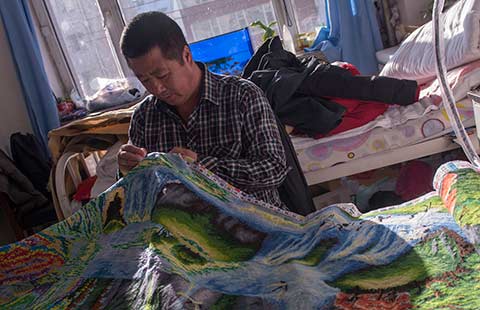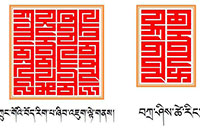China rejects Vietnam's accusations of threatening civilian air traffic
(Xinhua) Updated: 2016-01-14 19:29BEIJING -- China is shocked and confused by Vietnam's argument that the test flights at a newly built airport in the South China Sea have threatened civilian air traffic, a foreign ministry spokesperson said Thursday.
Foreign Ministry spokesman Hong Lei made the remarks when asked to comment on Vietnam's accusation that China did not inform the Civil Aviation Authority of Vietnam of its test flights and threatened the safety of civil aviation.
The notification from the Chinese Embassy "can not substitute China's notification to the appropriate air traffic services units of Vietnam in order to ensure the safety and regularity of flight operations," the Civil Aviation Authority of Vietnam said in a statement late Tuesday.
At 5:46 p.m. (Beijing Time) on Dec. 28, the Flight Inspection Center of the Civil Aviation Administration of China (CAAC) informed the Ho Chi Minh Flight Information Region of the flight plan, route and other technical information concerning China's inspection aircraft in accordance with relevant regulations and international practices, said Hong.
Besides the notifications by competent authorities, China also made specific contact with Vietnam's diplomatic authorities on Dec. 30 for technical notification and explanation, he said.
Due to unreasonable obstruction from the Vietnamese side, China ultimately decided to turn the flights into a state aviation activity and sent civilian planes to complete the flights, he added.
On Jan. 6, China conducted two test flights at its southernmost airport on Yongshu Jiao, which it is developing for humanitarian purposes, including emergency landing and maritime rescue.
"We once again remind the Vietnamese side that China's inspection and test flights to the newly built airport on Yongshu Jiao was in line with international laws and practices," said Hong.
As stipulated by international law, state aviation activities, not bound by the Convention on International Civil Aviation and relevant regulations of the United Nations' International Civil Aviation Organization (ICAO), are within sovereign states' independent hands to operate.
- New airfield to boost public service in South China Sea: Chinese official
- China conducts successful test flights at newly-built airfield in South China Sea
- China's recent moves in South China Sea make sense: US scholar
- US' provocations inflame South China Sea tensions
- China's Sovereignty over the South China Sea Islands - Brooks No Denial
- China to ensure all citizens get registered
- China's first Arab Policy Paper sets out development strategies
- New fonts give Tibetans texting options
- LGBT tourism services eyed for growth prospects
- Lawsuits bloom under regional litigation process
- China strengthens anti-graft efforts for clean governance
- Fight against corruption will reach grassroots level in 2016, says Xi
- Capital aims to woo more top-level foreign workers
- Shanghai Disney Resort to open
- Xi reshuffles military headquarters







